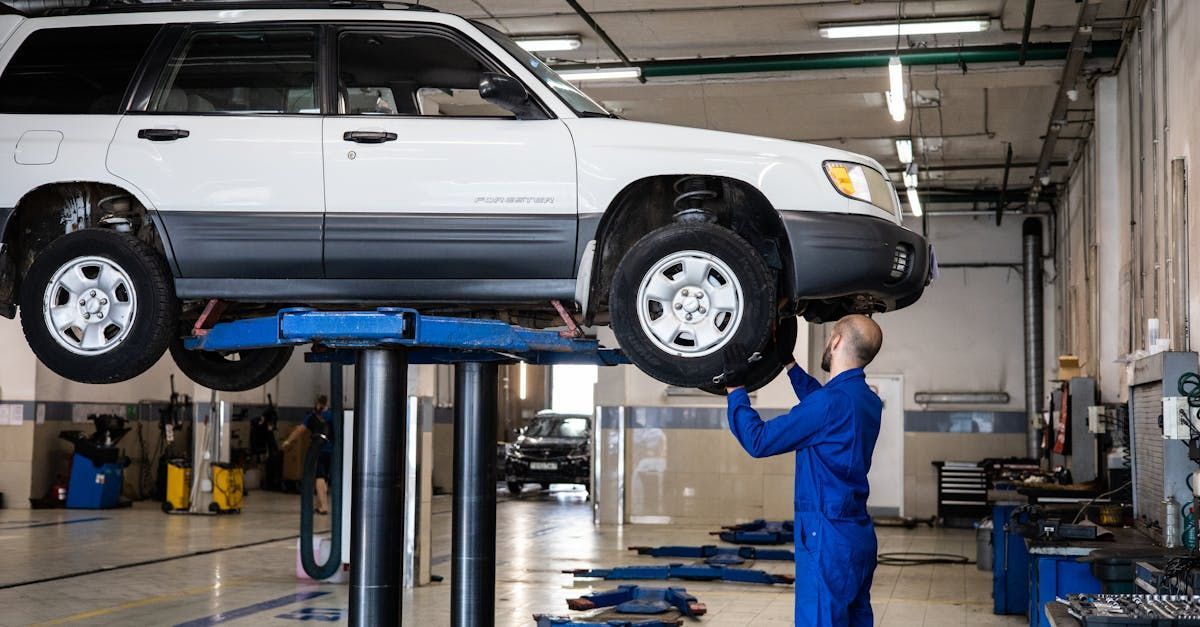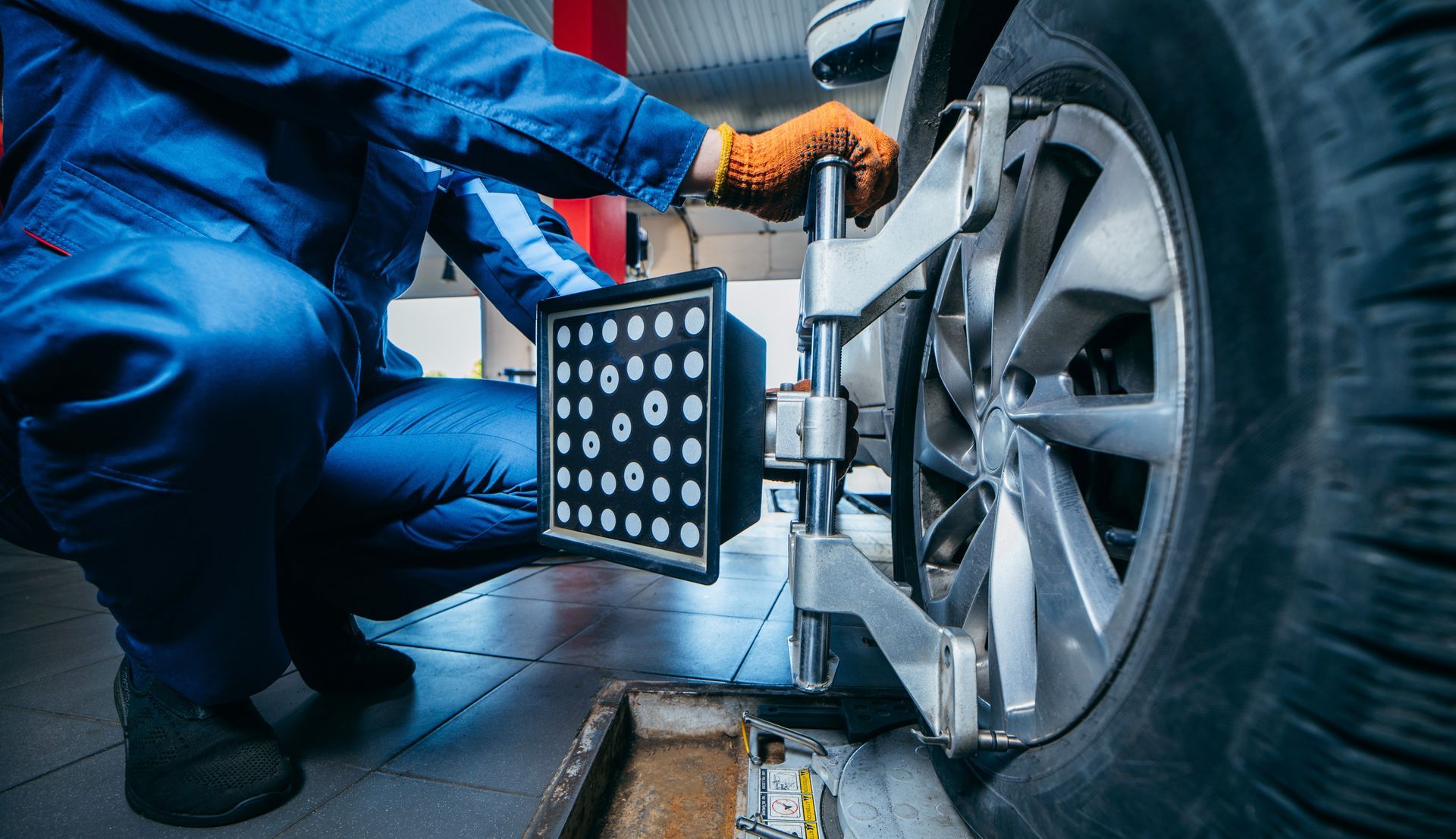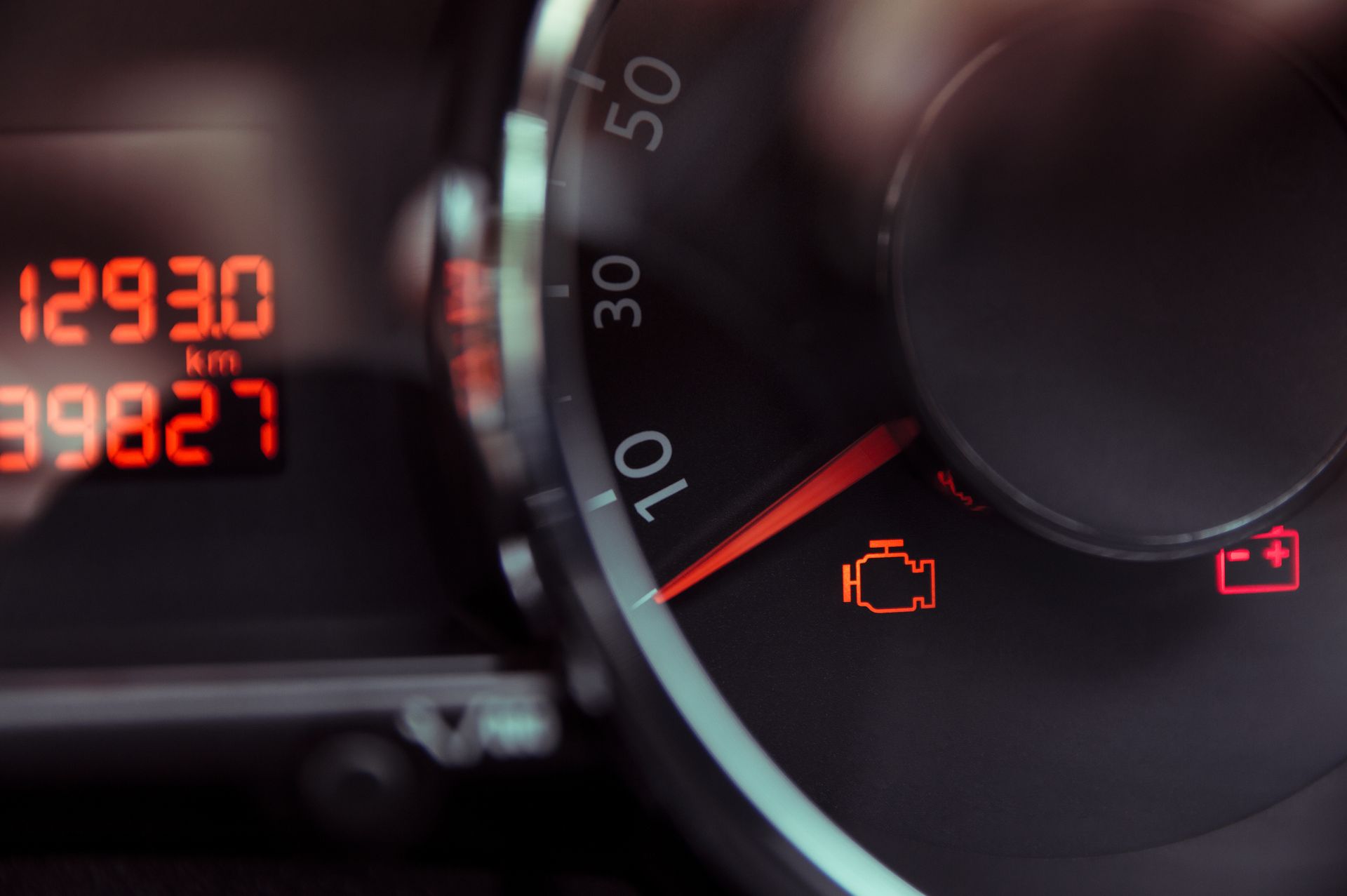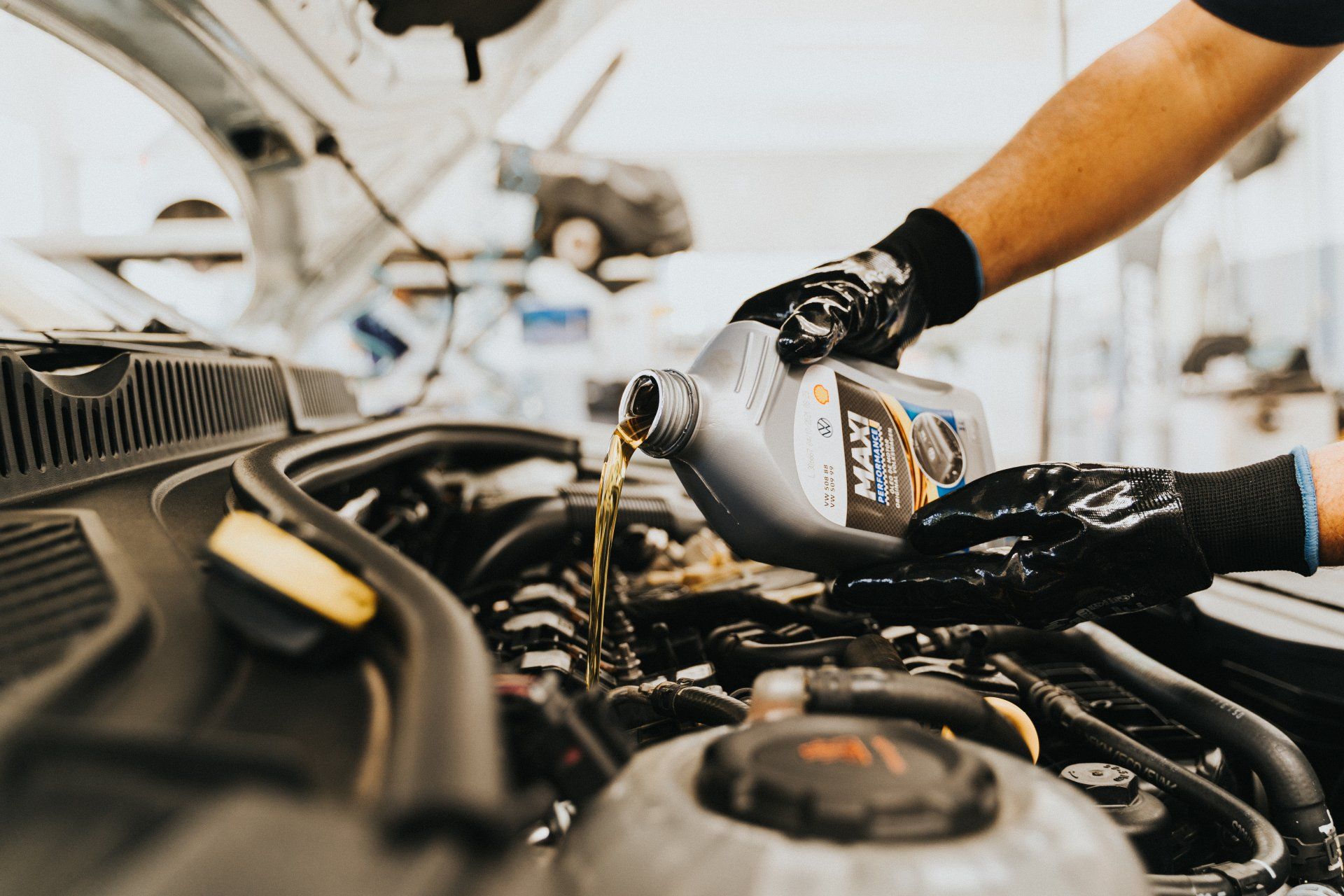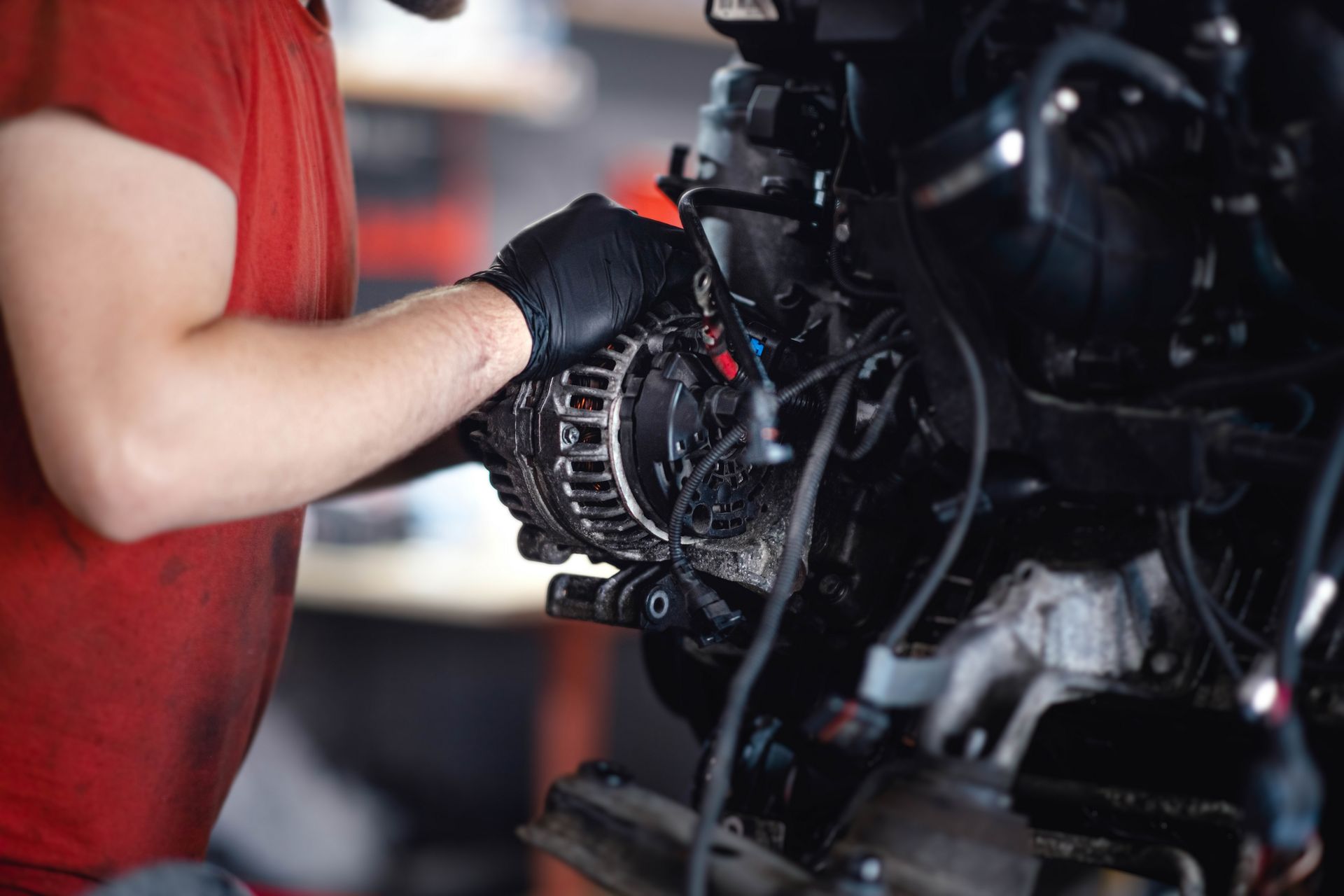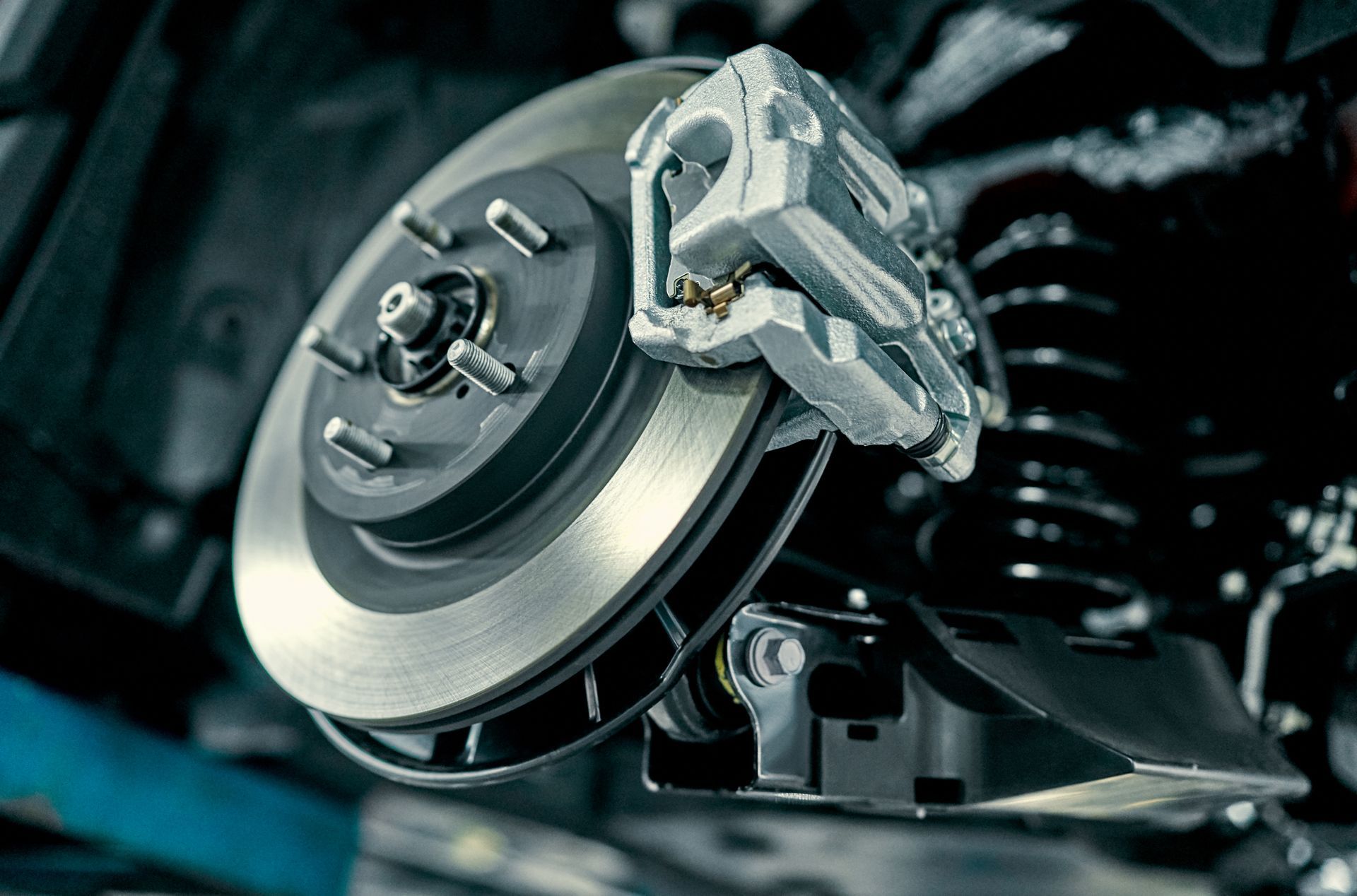How often do your brakes need to be serviced?
How often do your brakes need to be serviced?
Does my vehicle’s brakes need to be serviced right now?
Yes, it’s important to regularly maintain and service your brakes so they will operate properly. If you are hearing a squeaking or squealing noise from your brakes, it’s definitely time to service your brakes. Road Safety is always important – not only to you but for others around you!
When should I service my brakes?
The difference between good and bad brakes can mean the difference between life and death if your brakes go out at the wrong time. Your brakes should be checked at least once a year. A yearly inspection will give you an idea of the condition your brakes are in. That’s why we always offer Free Brake Check!
What is our premium brake service?
Our Premium Brake service involves checking the condition of your brakes, including the brake pads and calipers, rotors, drums and fluid. Brake service should be done anytime you feel your brakes are not performing well. Mileage may vary on brake wear but is generally seen anywhere between 20,000 miles and 50,000 miles, depending on your driving habits and the road conditions on which you normally travel. An yearly inspection will help determine what repairs or replacements are needed.
What does brake service include?
Our Premium Brake Services may vary depending on where you take your vehicle and how comprehensive the service offerings are.
Our Premium Brake Services usually include:
- Caliper replacement
- Anti-lock Brake System diagnostics and repair
- Brake pad and rotor replacement and resurfacing
- Brake fluid check and exchange
- Cleaning and adjusting brake drums and parking brakes
- Repacking wheel bearings
Brake service for High Performance manufactures
When you have a high-performance vehicle like a BMW, Mercedes – Benz , Audi and vehicles of those caliber, you should entrust any highly trained and qualified technicians. Don’t take our word for it. Just look us up on Google Reviews. We are ranked #1 in Automotive Repair in all of Houston, Texas.

How do you know your brake pads are bad?
There are several signs that might warn you that you need new brakes. One of the most common things you’ll notice if your brake pads are bad is a squealing or squeaking noise when your brakes are applied. Usually this noise can be heard even when the windows are up, though it might not be heard over the radio or air conditioner noise. If this noise is infrequent, you may not have a problem. Sometimes you’ll hear a squeal occasionally if your vehicle has been sitting for a long time after being exposed to water. In this case, a small layer of rust has built up on the rotors and when it comes in contact with the brake pads, you may hear a squeal after a couple of stops.
You can also check for brake wear visually. You can look at the brake pads through the wheel’s spokes. About ¼ inch of pad should be visible. Less than that and you should have pads replaced or inspected.
Brake Service Light
When your brake service light comes on, if your parking brake isn’t engaged, it usually means your brake fluid level is low. If you have low brake fluid, you should get the fluid replaced. Without proper brake fluid levels, you may not be able to apply enough pressure on your brakes to stop properly. A brake service light may also indicate your brake pads are worn and need replacing. Check your vehicle’s owner’s manual for specifics on your vehicle’s braking system.

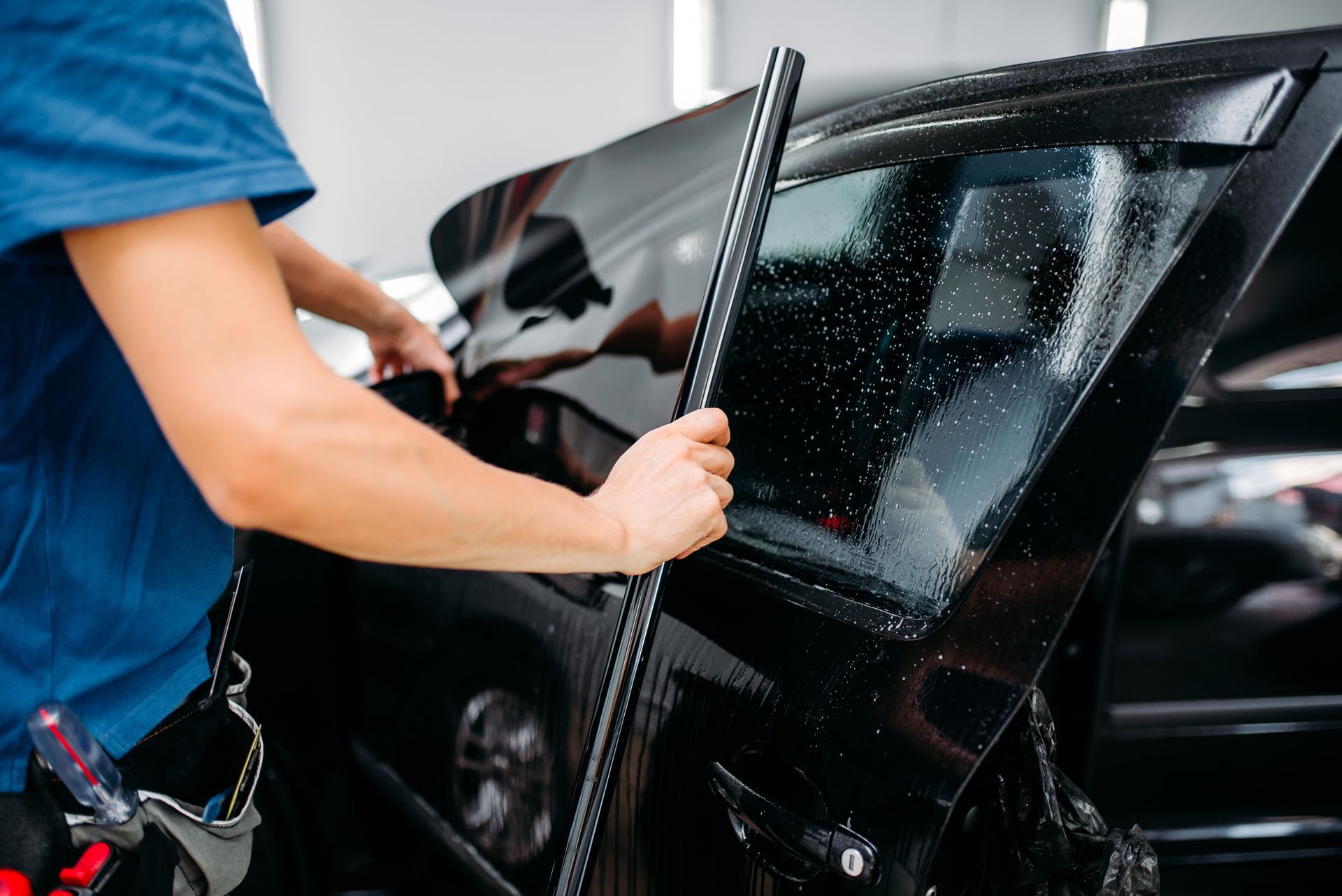

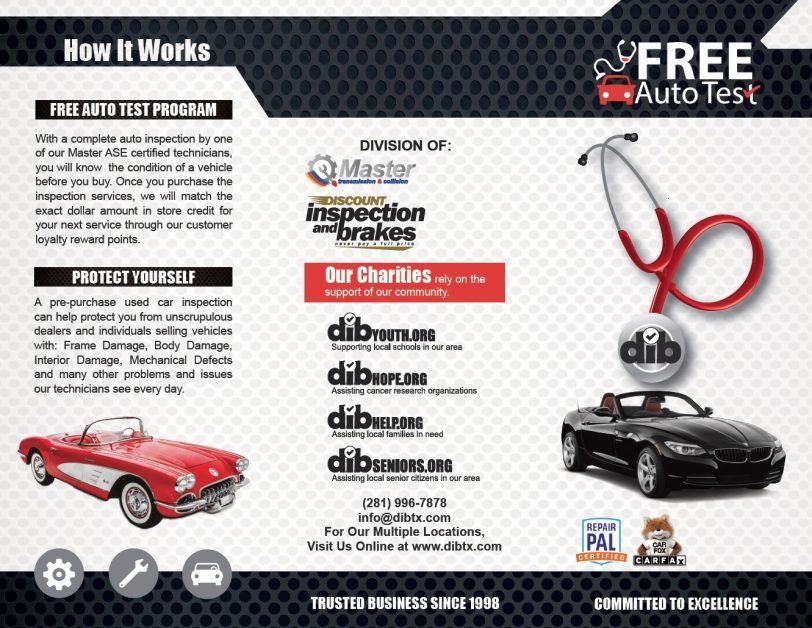
Here To Keep You Moving
We Finance, No Credit Needed








List of Services
-
Auto RepairAuto Repair
-
Brake RepairBrake Repair
-
AlignmentsAlignments
-
Ac RepairAc Repair
-
Alternator RepairAlternator Repair
-
Check Engine LightsCheck Engine Lights
-
InspectionsInspections
-
Oil ChangesOil Changes
-
TransmissionsTransmissions
-
Collision RepairCollision Repair
-
Ceramic ProCeramic Pro
-
Spray-in-BedlinersSpray-in-Bedliners
-
Auto Glass & Window TintAuto Glass & Window Tint
Services
List of Services
-
Auto RepairAuto Repair
-
Brake RepairBrake Repair
-
AlignmentsAlignments
-
Ac RepairAc Repair
-
Alternator RepairAlternator Repair
-
Check Engine LightsCheck Engine Lights
-
InspectionsInspections
-
Oil ChangesOil Changes
-
TransmissionsTransmissions
-
Collision RepairCollision Repair
-
Ceramic ProCeramic Pro
-
Spray-in-BedlinersSpray-in-Bedliners
-
Auto Glass & Window TintAuto Glass & Window Tint
